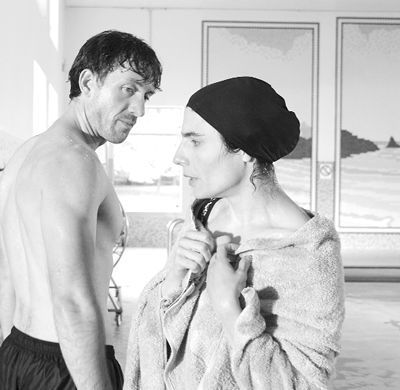Ruba Nadda takes on ethnicity, religion, if not reality, in a cross-cultural romance
It’s always refreshing to see a Western film about Muslims that doesn’t portray them as terrorists. Aside from that, “Sabah” feels mighty second-hand.
Cross-ethnic love stories in which the participants have to defy barriers set up by their families are a cinematic staple, especially in feel-good fare like “My Big Fat Greek Wedding” and “Bend It Like Beckham.” Israeli director Dover Kohashvili’s excellent 2001 film “Late Marriage” took the template and managed to show just how difficult it can be to revolt against parental tyranny, but such films are generally unaccountably upbeat.
They’re also usually told so that one can’t help identifying with the young lovers, especially if the protagonist is a woman. “Sabah” is named after its lead character, a 40-year-old Arab woman played by Arsinée Khanjian. Raised in a conservative, close-knit family, she’s still single but rejects the prospect of an arranged marriage. One day, she meets a man at the pool who has mistakenly taken her towel. Despite Sabah’s shyness and awkwardness, the two begin dating, but since he is Christian, Sabah keeps their relationship a secret. She gradually discovers that other members of her family have secrets of their own.
“Sabah” has no American distributor, but I can imagine the Lifetime Movie Channel picking it up. Khanjian gives a fine performance—though her accent sounds nothing like any of her family members’—but most of the characters are one-note caricatures. Her brother, in particular, is a misogynistic control freak, eventually given a token opportunity to open up.
Sabah’s rebellious niece winds up attracted to the man her family wanted her to marry in the first place, after running into him in line outside a nightclub. Director Ruba Nadda tries to have it both ways, suggesting that one needn’t give up heritage and family ties to love someone outside one’s ethnic group or religion. In a world where tribal and ethnic tensions aren’t going away any time soon, Nadda’s vision of multi-cultural bliss, which extends itself through the closing credits, feels mighty hollow.
gaycitynews.com


































